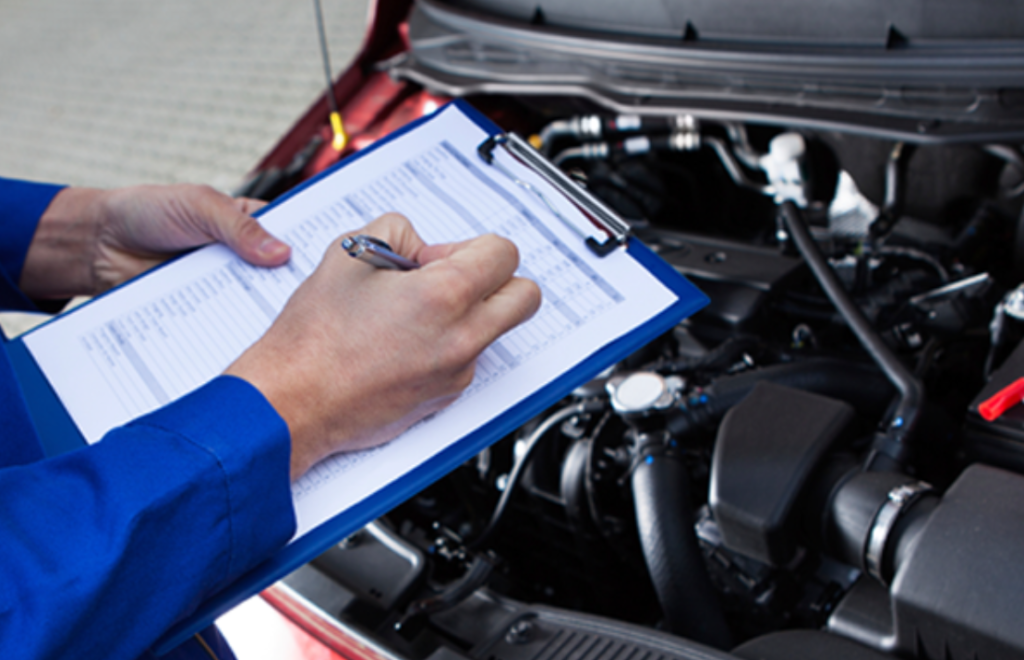Experiencing a car that makes a humming noise when accelerating can be both annoying and potentially indicative of an underlying mechanical issue. This sound may vary in intensity, sometimes only becoming noticeable at higher speeds or specific RPMs. Understanding what’s causing your car makes humming noise when accelerating is crucial for maintaining your vehicle’s performance and ensuring your safety. Ignoring these noises could lead to more severe damage and costlier repairs in the future, as unresolved issues may worsen over time.

Causes of Humming Noise When Accelerating
Worn Tires or Uneven Tire Tread Wear
If your car makes humming noise when accelerating, one of the first areas to check is your vehicle’s tires. Worn or uneven tire tread can create vibrations and noise that become more apparent during acceleration. Regular tire inspections and rotations can help prevent this issue.
Wheel Bearing Issues
Faulty or worn-out wheel bearings often create a humming noise that worsens with speed, making it more noticeable when your car is accelerating. Regular wheel bearing maintenance and proper lubrication can prevent premature wear.
Transmission Problems
Another potential culprit when your car makes humming noise when accelerating is the transmission. Transmission issues, such as low fluid levels or worn components, can cause a variety of noises, including a humming sound during acceleration. Following your vehicle’s recommended transmission service schedule can help prevent such problems.
Differential or Drivetrain Issues
Your vehicle’s differential and drivetrain are complex systems involving numerous rotating components. Any wear or damage in these areas can cause a humming noise when accelerating. Regular inspections of your drivetrain and differential can identify wear or damage early, preventing potential noises during acceleration.
Exhaust System Irregularities
A damaged or leaking exhaust system may also be the reason your car makes humming noise when accelerating. Holes, leaks, or blockages in the exhaust can create a resonating noise that gets louder as you speed up. Regular inspections and maintenance of the exhaust system can help prevent such issues.
Engine Air Intake or Induction Noise
Lastly, your vehicle’s air intake system could cause a humming noise during acceleration. This usually happens if there’s a leak or if the air filter is dirty or obstructed, causing the engine to work harder and potentially create noise. Keeping the air filter clean and addressing any leaks promptly can help avoid this problem.
Potential Risks and Dangers of Car makes humming noise when accelerating
Ignoring a car that makes a humming noise when accelerating could result in a few potential risks.
Impact on Vehicle Performance
Noise can be an indicator of a mechanical issue that could affect your vehicle’s performance. You might notice decreased power, poor fuel efficiency, or an uncomfortable driving experience. Addressing the issue promptly can help maintain optimal performance.
Safety Implications
If the humming noise when accelerating is due to a critical component failing, such as a wheel bearing or transmission part, it could put you at risk while driving. Safety should always be a top priority, and any suspicious noises should be investigated immediately.
Potential for Costly Repairs if Left Unaddressed
Small problems can lead to larger ones if left unattended. For example, a worn-out wheel bearing can lead to more significant damage to the wheel assembly or even cause a wheel to come off while driving, leading to a much more costly repair. Early diagnosis and repair can help prevent escalating repair costs.
Troubleshooting and Resolving Car makes humming noise when accelerating
If your car makes humming noise when accelerating, here’s how to identify and resolve the issue.
Identifying the Source of the Humming Noise
Pinpointing the source of the noise can be challenging but is a vital first step. Listen carefully to the sound and try to determine where it’s coming from – front or rear, left or right. Sometimes, the noise may be a combination of multiple issues, requiring a professional mechanic’s expertise.
Checking Tire Condition and Wheel Alignment
Inspect your tires for signs of uneven wear and check whether they’re properly aligned. Misaligned or unevenly worn tires can create a humming noise when the car is accelerating. Regular tire inspections and alignments can help prevent this problem.
Inspecting Wheel Bearings for Wear
Check your wheel bearings for any signs of wear or damage. If you suspect a faulty bearing, seek professional assistance as it requires special tools and skills to repair or replace. Regular wheel bearing maintenance and lubrication can prevent premature wear.
Evaluating Transmission and Drivetrain Components
Take a look at your transmission fluid to ensure it’s at the correct level and still in good condition. If you suspect a drivetrain issue, a professional inspection might be necessary. Following your vehicle’s recommended transmission service schedule can help prevent transmission-related issues that might cause a humming noise.
Examining the Exhaust System for Leaks or Damage
Look for any visible signs of damage or leaks in your exhaust system. A professional can perform a pressure test to identify any not-so-obvious issues. Regular inspections and maintenance of the exhaust system can help prevent resonating noises.
Performing Necessary Repairs or Replacements
If you identify the source of the noise, perform necessary repairs or replacements promptly to avoid more significant issues. Be sure to use high-quality parts and seek assistance from certified mechanics if needed.

Preventive Maintenance and Care
Taking preventative measures can help avoid a situation where your car makes humming noise when accelerating.
Regular Tire Inspections and Rotations
Regularly inspect your tires for wear and rotate them to ensure even tread wear. This practice can help prevent tire-related noises during acceleration. Proper tire maintenance is essential for overall vehicle safety and performance.
Wheel Bearing Lubrication and Maintenance
Properly lubricated and maintained wheel bearings can prevent humming noises. If your vehicle is older or has high mileage, consider having the wheel bearings inspected regularly as part of your maintenance routine.
Scheduled Transmission Servicing
Adhering to your vehicle’s recommended transmission service schedule can prevent many transmission-related issues that might cause a humming noise. Regular servicing helps maintain the transmission’s efficiency and prolong its lifespan.
Drivetrain and Differential Inspection
Regular inspections of your drivetrain and differential can identify wear or damage early, preventing potential noises during acceleration. Addressing drivetrain issues promptly can also prevent more extensive damage and costly repairs.
Exhaust System Maintenance
Keep your exhaust system in good condition by ensuring it’s free of leaks, damage, and blockages. Regularly inspect and replace worn-out components to avoid resonating noises. A well-maintained exhaust system contributes to better fuel efficiency and reduced emissions.
Frequently Asked Questions (FAQs)
Why does my car makes humming noise when accelerating, but not when idling?
The humming noise during acceleration could be related to components that only engage when the car is in motion, such as the tires, wheel bearings, or drivetrain. The lack of noise when idling may indicate that these components are not active.
Can worn tires cause a humming noise when accelerating?
Yes, worn tires with uneven tread wear can create vibrations that manifest as a humming noise when accelerating. Proper tire maintenance, such as regular rotations and replacements when necessary, can prevent this issue.
What are the signs of a failing wheel bearing that could cause humming noises?
Signs of a failing wheel bearing include a humming or growling noise, especially when turning or accelerating. You may also feel vibrations in the steering wheel or experience poor handling and reduced vehicle stability.
Will driving with a humming noise in my car worsen the problem?
Driving with a humming noise may worsen the underlying issue if it’s related to critical components like wheel bearings or the transmission. Continued driving can cause further damage and potentially lead to more costly repairs.
How can I distinguish between engine noise and wheel-related humming noises?
Engine noises often change with engine RPM, whereas wheel-related humming noises typically vary with the vehicle’s speed. Additionally, engine noises might not be affected by vehicle motion, while wheel-related noises are.
Can a faulty exhaust system cause humming sounds during acceleration?
Yes, a damaged or leaking exhaust system can create resonating noises, including humming sounds during acceleration. Inspecting and maintaining your exhaust system can help prevent such issues.
Is it safe to continue driving my car if it’s making a humming noise?
While a humming noise itself might not be immediately dangerous, it’s essential to identify and address the underlying cause to ensure your safety. Continuously driving with an unidentified noise could lead to further problems.
Can transmission issues lead to humming noises when accelerating?
Yes, transmission issues, such as low fluid levels or worn components, can cause humming noises during acceleration. Regular transmission servicing can help prevent such problems.
How often should I have my tires and wheel bearings checked?
Tire inspections should be part of regular vehicle maintenance, and wheel bearings should be checked during scheduled maintenance services or whenever you notice signs of wear or noise.
Should I attempt to diagnose and fix the issue myself, or should I seek professional help?
While some minor checks and inspections can be done by car owners, diagnosing and repairing complex issues, especially those related to transmission or drivetrain, should be left to professionals to ensure proper repair and safety.
Conclusion
A car that makes a humming noise when accelerating requires prompt attention and diagnosis. Identifying the source of the noise and addressing potential issues early can prevent further damage and ensure your vehicle’s performance and safety on the road. By adhering to preventive maintenance practices and seeking professional help when needed, you can keep your car running smoothly and eliminate any annoying humming noises during acceleration.